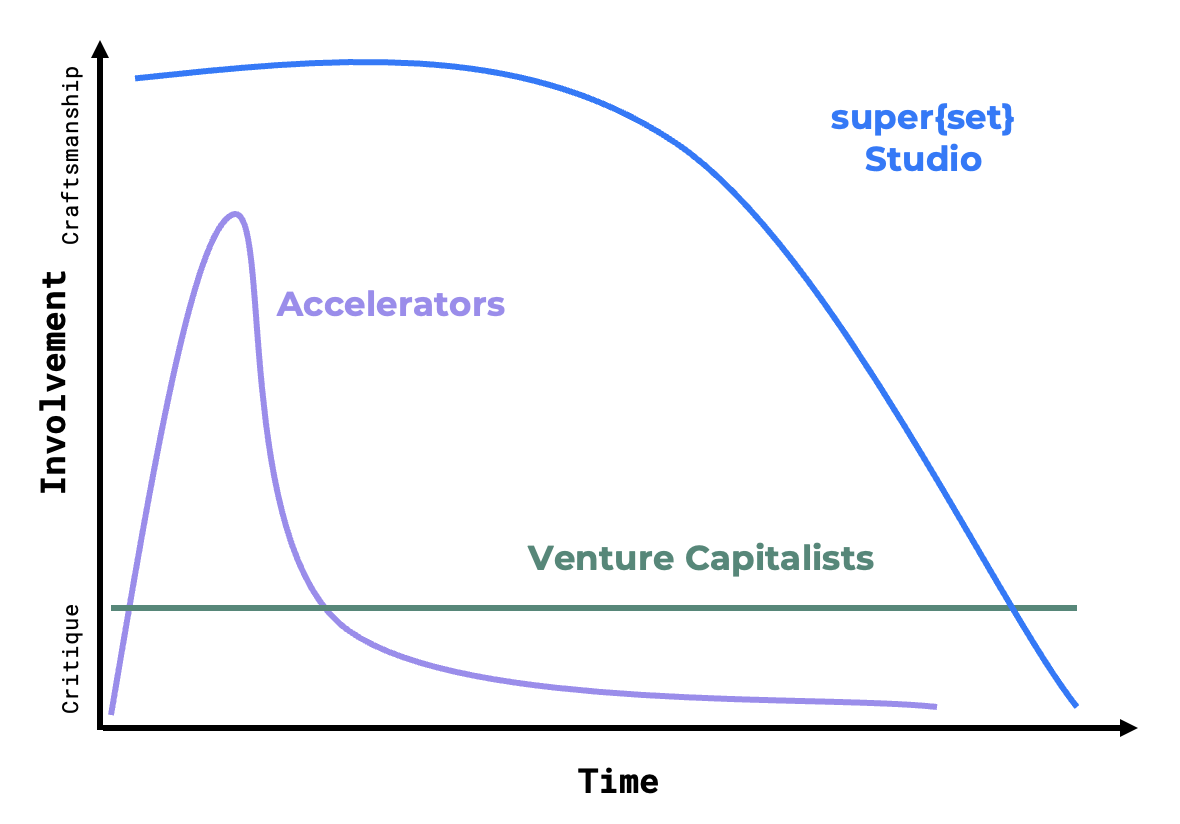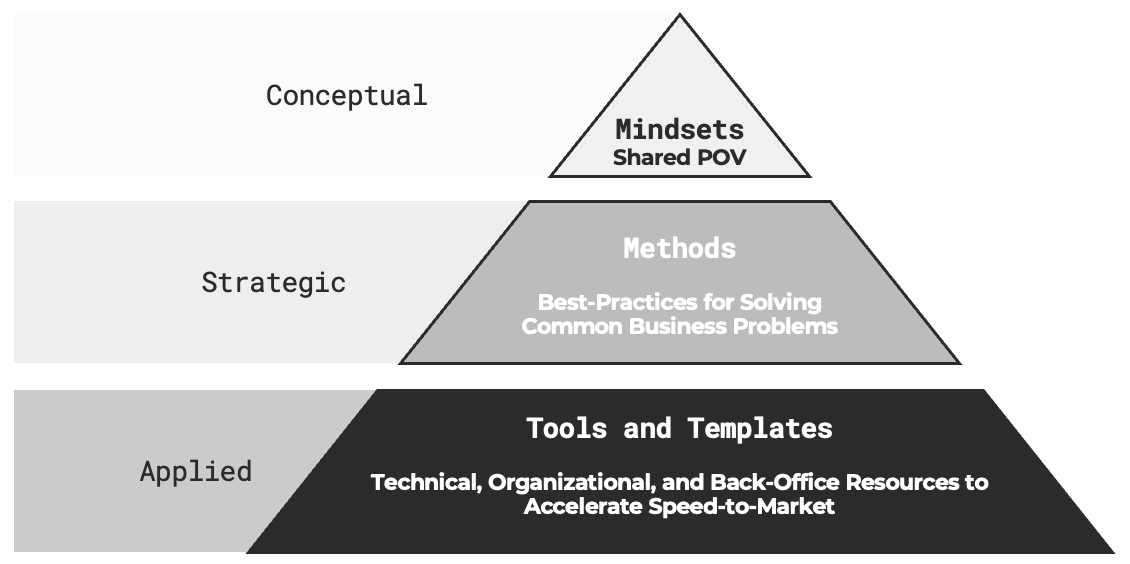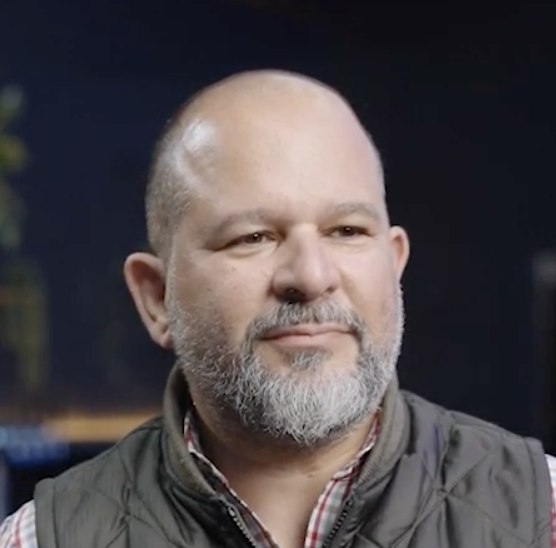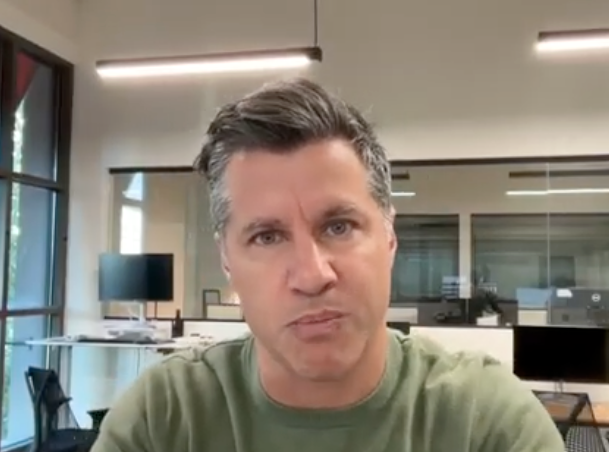
We don’t critique, we found and build.
We don’t critique, we found and build.
He had a point: yes, we manage a fund, but we only deploy it in the service of companies we co-found. Unlike VCs, we do not source outside companies to invest in. Similarly, we don’t hold the infamous “Monday meeting” to determine what investments to make. The fund is a necessary component of our model, but investing is not what we do.
At its simplest, at super{set}, we show up as experienced company builders and as more than just the first money in the door. We are hands-on co-founders: making the first hires, architecting the product, and landing the first customers.
Craftsmanship vs. Critique
You might be wondering — don’t VCs do the same thing, or at least say they do? Don’t the best VCs jump in at a moment’s notice to put out fires, settle disagreements between co-founders, and help land big whale customers? Perhaps some do. But even there, it’s often at a different cadence or from a different perch, unlike how we show up at super{set}.
As one prominent VC told us early in our careers: “We’re professional critiquers. See, you craft, we critique. That’s how this works.”
That distinction has stuck in our heads ever since. In a traditional venture fund model, VC investors make bets on people (founders), markets, and technical disruptions. Founders do the same thing: they bet on people (co-founders, early employees, investors), markets, and technical disruptions. The difference is, founders are on the field playing ball while investors are coaching on the sidelines. Founders craft, VCs critique.
As serial entrepreneurs, we know that building a company from scratch is hard. Building in the early stage is a pride-swallowing and soul-sucking experience. As founders, we got pushed to the ground and kicked in the head again and again, only to pull ourselves up and get back to work. However involved and invested VCs may come to feel about a company, they aren’t taking those blows. They’re comfortably ensconced in a well-appointed office, with a more-than-comfortable salary alongside diversified portfolio returns. Crafting is fundamentally different than critiquing.
Crafting the Soil Conditions for Success
In traditional VC investing, there is no need to blur the line between craft and critique. The skills and experiences required to perform as a successful investor are of course not the same as what is required to meet the challenges of launching, leading, and exiting a startup. Entrepreneurship and venture capital are cousins, but hardly the same thing. So, why mix the two in a studio model?
At super{set}, we focus on creating the soil conditions for success. At Rapt, our first company started in 1999 just before the Dot-comTech Bubble popped, we zigged and zagged a lot, and ultimately executed a successful pivot away from supply chain optimization of physical goods to pricing and inventory optimization of digital advertising. While every company buildout requires continuous course correction, there was lots of improvisation in our first go at entrepreneurship — arguably too much.
For our second company, Krux, we did everything we could to avoid the years of flailing we underwent at Rapt. We sat at the kitchen table for months, not just jawboning and spitballing but establishing detailed product blueprints and organizing go-to-market plans. The second company’s journey was still hard, but the early formation discipline allowed us to better avoid ditches, anticipate threats, and seize opportunities — and had something to do with the bigger, stronger outcome we achieved.
After we sold Krux to Salesforce in 2016, with a significant return for all stakeholders, we wanted to take this insight and scale it in a way that wasn’t happening in the early-stage venture ecosystem. Getting the soil conditions right at inception (especially for a first-time founder) is crucially important and difficult to do. A VC showing up at a quarterly board meeting to dole out some critique is often not enough to set a new company on the path to success.

Likewise, an accelerator or incubator offering a high-touch model that is time-bound to a few months (and then drops off a cliff after “demo-day”) is just as lackluster. This shows in the low percentage of accelerator graduates that reach maturity. Early-stage companies require a high degree of dedicated craftsmanship over a long period.
There has to be another way — and it is from this frustration that we started super{set}. At super{set} we don’t critique, we found and build over a long time horizon to create the soil conditions for success.
From Patterns to Playbooks: Craftsmanship over the Long Ride
We are not anti-VC (we have been fortunate to work with many VCs with whom we have high regard), and the art of critique should not be discounted in company building. The best VCs that we have worked with have seen many failures and a few successes over their careers, and they know how to identify patterns and re-package them as critique for founders. Being able to pattern-match and say “this person is going to be a good hire,” “this product has a flaw in the business model,” or “this customer is going to be a good early partner” is valuable for early-stage companies and their founders. But this type of critique is more helpful in a company’s growth phase and is less beneficial at formation.
At super{set}, we pattern-match much earlier than VCs because we originate businesses ourselves. The first patterns we look for are customer pain points that can be solved with data-driven solutions. We recognize challenges — and thus opportunities — that often are not apparent to industry participants, through our lens of decades in software engineering, data management, AI, and ML. We intuit the patterns that we know and can monetize as new company opportunities.
Our philosophy of craftsmanship doesn’t end after the ideation phase. After identifying a viable data-driven solution and business opportunity, we go to work assembling the team. Our first hire is a product-oriented co-founder. Once that co-founder is onboard, we don’t pour a scotch and sit back in our armchairs while they do all the work; we show up side-by-side with them, shovel in hand. We are in it for the long haul, we’re not an incubator that spins off ideas after the first milestone.

Post-formation, we look for patterns and turn them into playbooks. A pattern allows you to discern a phenomenon or possibility; a playbook prescribes a set of methods and tools for exploiting it.
Our playbooks operate at conceptual, strategic, and applied levels. They include mindsets for shared perspectives on building data-driven companies, methods that are best practices for solving common business problems, and tools and templates that accelerate a new business’ speed to market. Playbooks are everything we wished we had at our fingertips when we were sitting at the kitchen table organizing our plan of attack at Krux.
Playbooks in hand, we stand with our product co-founders at the whiteboard to map out the product architecture and the staging and sequencing of the product roadmap. From there we work together to hire an engineering team, and with this early founding team we build out our product theses as full-fledged working prototypes.
We apply patterns and playbooks not to critique existing businesses but to form and scale new ones entirely. This early, pre-seed formation focus has positive downstream effects for recruiting the team, building out the product, and landing the first customers.
A Different Approach to Early Stage Investing
So back to the original question: “you have a fund — aren’t you just a venture capital firm with a different label?” Respectfully, no. We started super{set} because we saw a fundamentally different approach for early-stage investing. Investing in super{set} is a direct shot of adrenaline into companies we found and build. VCs ask, “can we pick a winner?”, while we at super{set} ask “can we build a winner?”
To build a winner, no amount of money is a substitute for the on-the-ground operational and formation acumen required to create the soil conditions necessary for success. You can throw billions of dollars at any engineering problem, but at the end of the day, you need engineers, not financiers, to build the thing you’re after.
We’re about founding and building, and then taking the long ride — because when you take the long ride, you can build world-changing companies. Yes, some parts of our model look like traditional VC, but we’re operating in a different lane as a different asset class entirely.
Tech, startups & the big picture
Subscribe for sharp takes on innovation, markets, and the forces shaping our future.
Let's keep in touch
We're heads down building & growing. Learn what's new and our latest updates.


